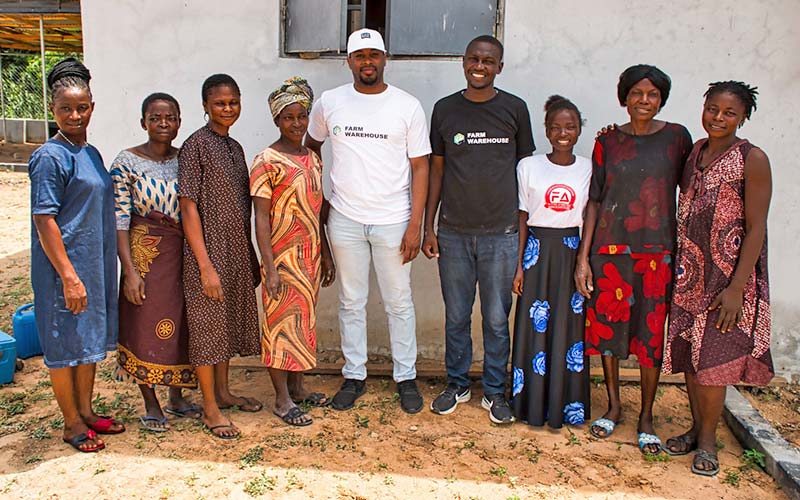
Page 2 of 3

Farm Warehouse
Farm Warehouse began as a distributor of agro-processing equipment to farmers and small businesses connected to mini-grids. After selling 75 processing units, the company evolved to operate a digital platform providing access to PURE (Productive Use of Renewable Energy) equipment, warehouse services, and market linkage opportunities. With funding from PREO, Farm Warehouse is piloting an e-commerce application to serve as a marketplace for processed products from smallholder farmers. The company continues to distribute small-scale PURE equipment and provide produce warehousing services, supporting the entire value chain from equipment access to product storage and market connectivity.

Good Nature Agro
Good Nature Agro
Good Nature Agro (GNA) aims to enhance agricultural productivity in Zambia by introducing solar-powered borehole and irrigation systems which will enable farmers to grow crops during the dry season – increasing farming seasons from one to up to three per year while boosting incomes. GNA’s initiative, with funding from PREO, focuses on sustainable intensification of land use, reducing deforestation, and supporting subsistence farmers in growing high-value legume seeds like soybeans and groundnuts. By offering irrigation and contracting programs, GNA seeks to double farmers’ annual incomes without expanding land area. Additionally, GNA provides crop guidance and market access while using a ‘grower rating’ system to improve productivity and potentially secure financing for further equipment investments.
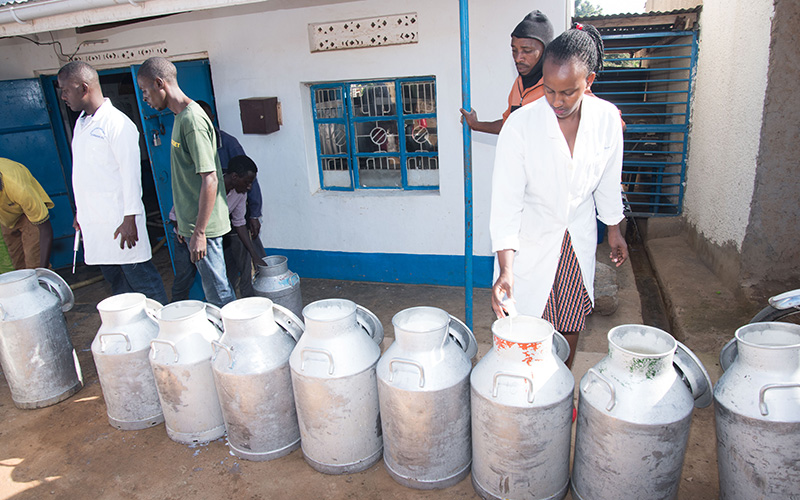
Heifer International
Heifer International
The Solar for Sustainable Income in Dairy project aims to benefit the dairy sector in Uganda by introducing solar-powered milk chilling infrastructure at five dairy cooperatives, in regions where chilling infrastructure is lacking. This PREO-funded initiative, involving JESA dairy and led by Heifer International, seeks to increase dairy production, reduce post-harvest losses, and boost farmers’ incomes by overcoming financial and technological barriers. By implementing this two-year project in central and southwestern Uganda, the initiative also aims to reduce energy costs and cut carbon emissions by shifting from diesel to renewable energy.
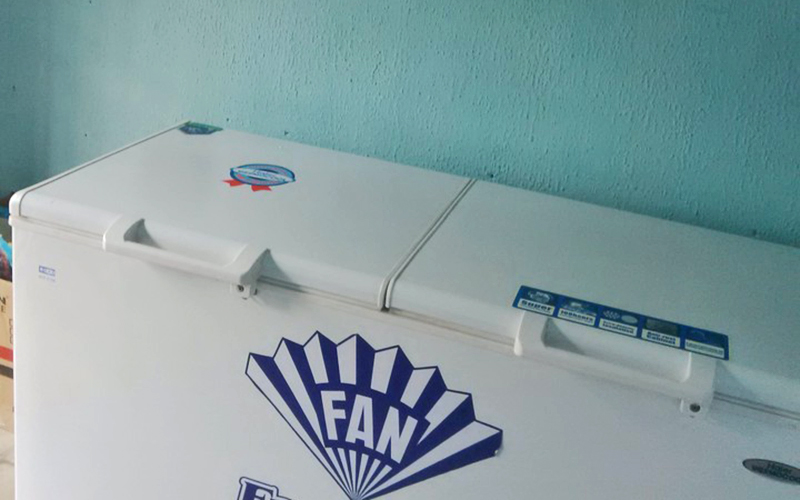
Hinckley Associates
Hinckley Associates
Hinckley Associates, in collaboration with Carnegie Mellon University (CMU) and Fan Milk, is leading a project to develop second life lithium battery packs to power fridge-freezers in Nigeria’s cold chain sector. Supported by funding from PREO, the initiative aims to reduce barriers for off-grid frozen product resellers by providing a cleaner, more affordable energy source. This innovation can enhance the business operations of Fan Milk and nationwide distribution network by reducing costs, improving fridge reliability, and increasing revenue through reduced stock spoilage. Additionally, Hinckley’s recycling efforts have provided valuable insights into environmental challenges, leading to expertise in energy storage and fridge processing, while fostering local job creation and economic value through sustainable energy solutions.
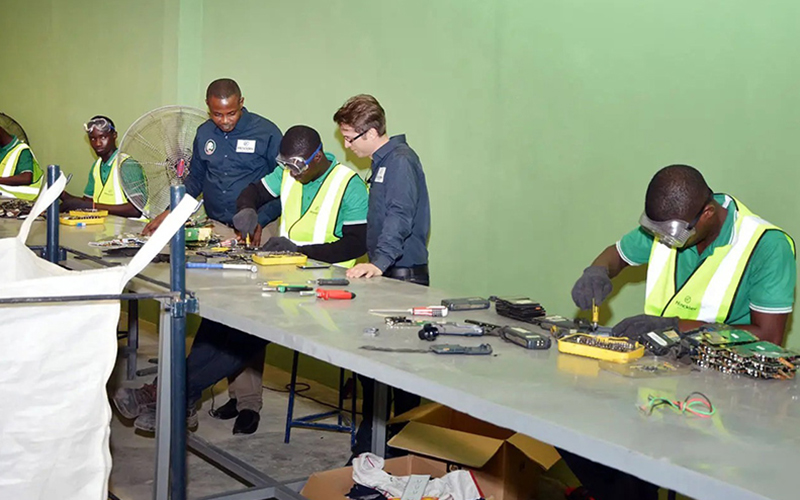
Hinckley E-Waste
Hinckley E-Waste
Hinckley, an e-waste recycling company established in Nigeria, has developed a semi-industrialised recycling facility capable of processing an impressive 10,000 tons of waste annually. The company’s innovative approach allows it to handle diverse waste streams, including batteries from cars, inverters, phones, laptops, and solar power units. In a milestone achievement, Hinckley became the first company to export lithium batteries from Nigeria to Europe for safe treatment, setting a new standard in responsible e-waste management. Recognising the unique challenges faced by telecom towers, which often operate in remote, off-grid locations and rely heavily on diesel generators for 24/7 service, Hinckley is now embarking on an ambitious project. In partnership with IHS, Nigeria’s largest telecom tower owner, and with funding from PREO, Hinckley aims to validate a proof of concept for developing and installing second-life batteries to power these towers. This initiative seeks to address the energy needs of critical communication infrastructure as well as promoting circularity by repurposing used batteries.
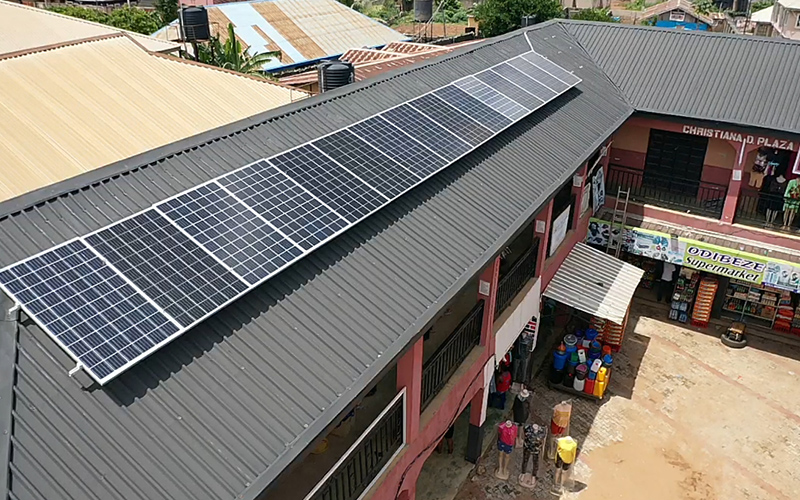
ICE Solar
ICE Solar
ICE Solar Commercial Power Ltd is a Nigerian climate technology company aiming to transform energy access for micro MSMEs through its innovative ‘Ignite’ market intelligence approach and ‘Catalyst’ platform. The company deploys rooftop solar systems to commercial plazas, offering electricity-as-a-service via monthly subscriptions. The company partners with universities to upskill and employ local young people for market analysis and site identification, particularly in underserved peri-urban and rural communities in the Niger Delta region. With funding from PREO, ICE Solar plans to refine its business and financing model, and expand it’s operations. This scalable approach, leveraging blended finance strategies and long-term subordinated debt instruments, not only addresses local energy needs but also promotes local employment and sustainable development in Nigeria.
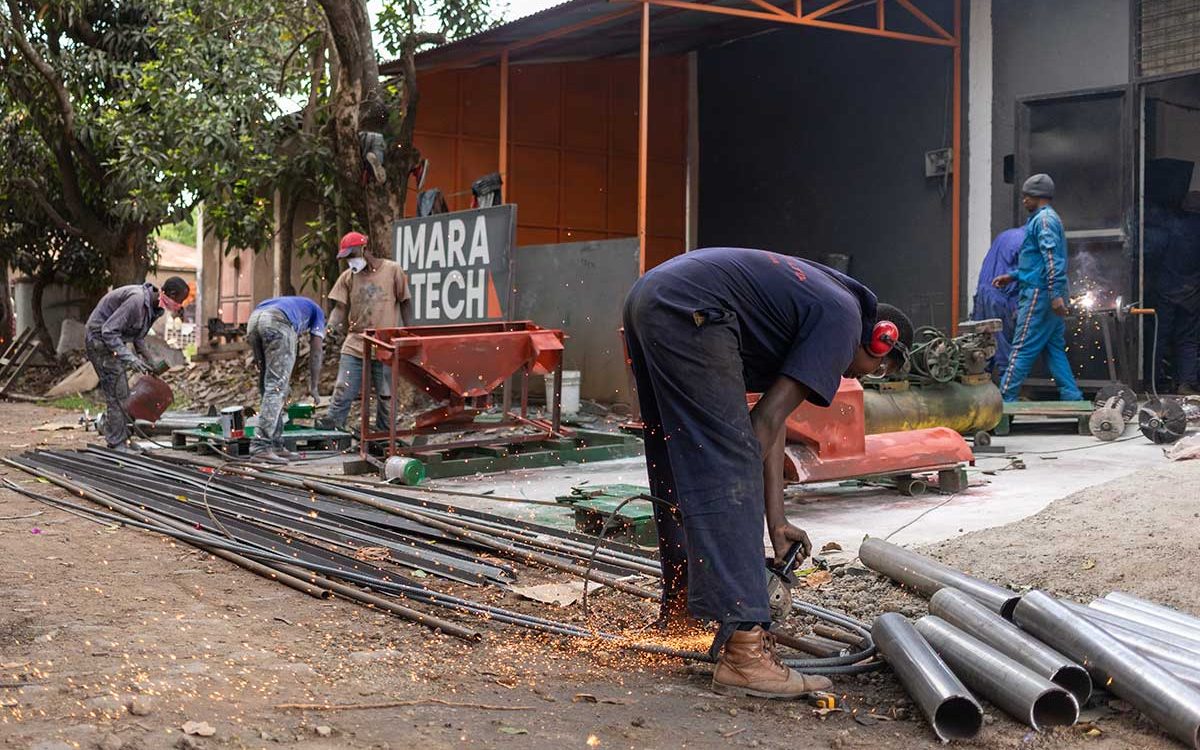
ImaraTech
ImaraTech
Imara Tech is addressing a lack of mechanisation and electricity access among smallholder farms in Tanzania by developing a portfolio of clean energy-powered agricultural machines. With 97% of these farms lacking machinery and less than half having community-level electricity, farmers are stuck with labor-intensive practices that limit productivity. Imara Tech’s initial products—a flour mill, peanut sheller, and oil press—are designed to enable off-grid farms to start profitable businesses by adding value to their harvests. With PREO funding, the company is scaling up local manufacturing and supply chains to ensure these machines, available in both AC and DC versions, can be widely deployed, with pilot testing throughout 2021 preceding full commercialisation.
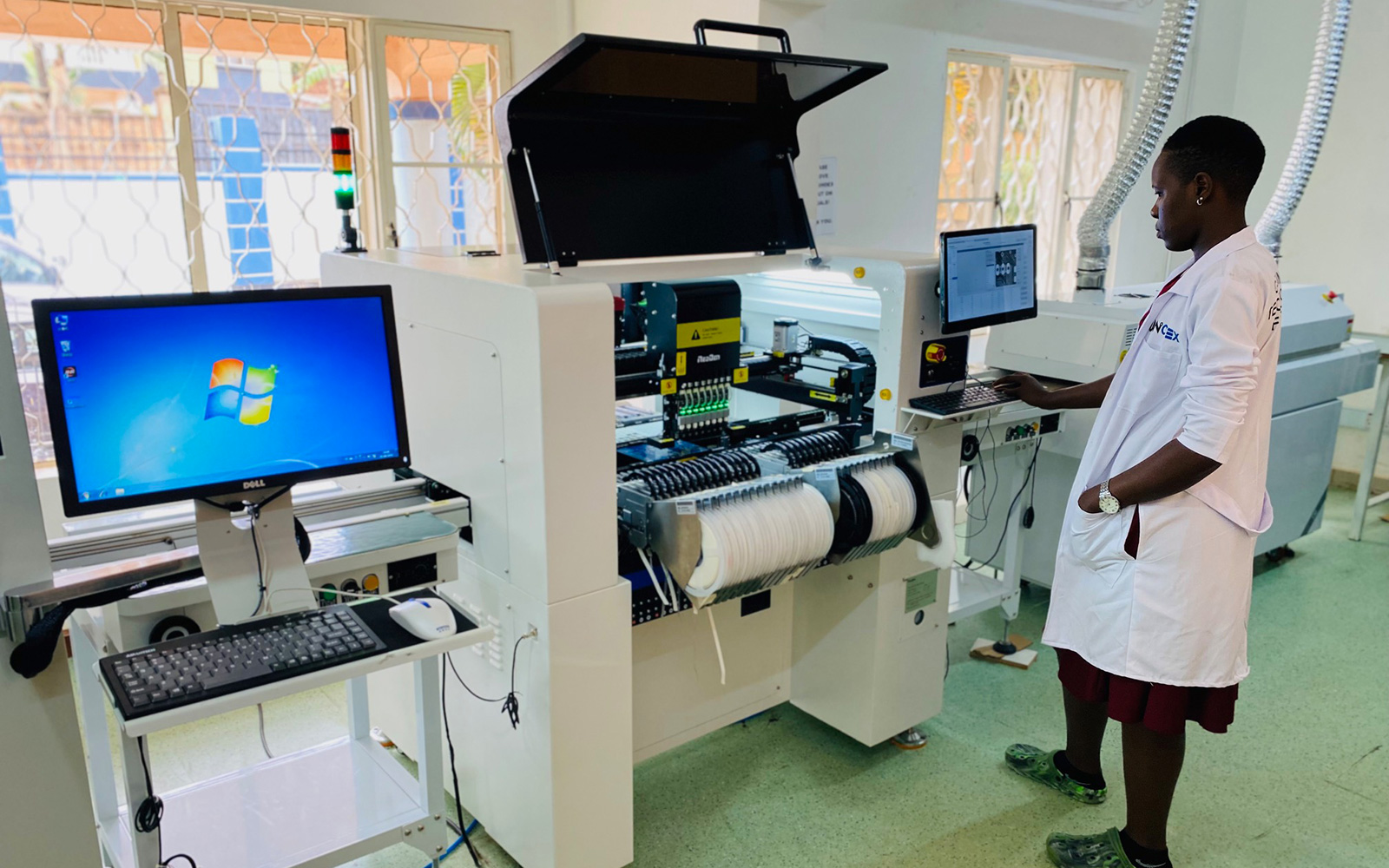
Innovex Uganda
Innovex Uganda
Innovex, a Ugandan technology company, focuses on embedded systems, connected devices, and wireless communication technologies. In response to challenges in sub-Saharan Africa’s off-grid solar PV market, which is heavily reliant on Chinese-manufactured hardware, Innovex developed ‘Remot,’ an IoT solution for remotely monitoring and controlling solar PV systems. Initially, the hardware was designed in Uganda but manufactured in China, leading to delays and quality issues. With support from PREO, Innovex tested the viability of fully localising the design, manufacturing, and testing processes in Uganda, reducing costs and creating local jobs, while improving the accessibility and reliability of solar systems in the region.
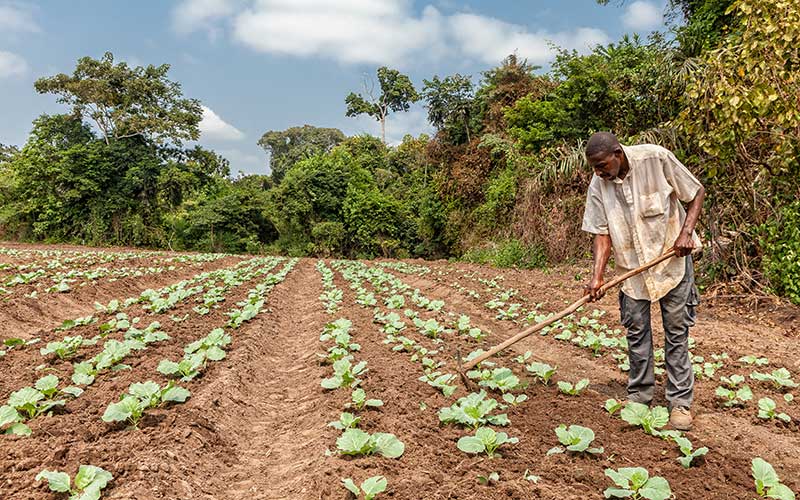
InspiraFarms
InspiraFarms
InspiraFarms designs, develops, installs, services, and finances cold chain technology for fresh fruit and vegetables, flowers, and animal protein supply chains in Africa and other emerging markets. InspiraFarms found that traditional cooling methods were not effective for high value produce and that there was an unmet need for removing the field heat within hours of harvest. With support from PREO, InspiraFarms developed a pre-cooling solution and demonstrated financial viability of operating pre-coolers and created a market opportunity. Pre-coolers are a portable, quick, and field-level response to reduce external temperature shocks on fresh produce immediately after harvest – the units bridge the gap between the farmer collection point and the packshed, to reduce post harvest losses and increase revenue.
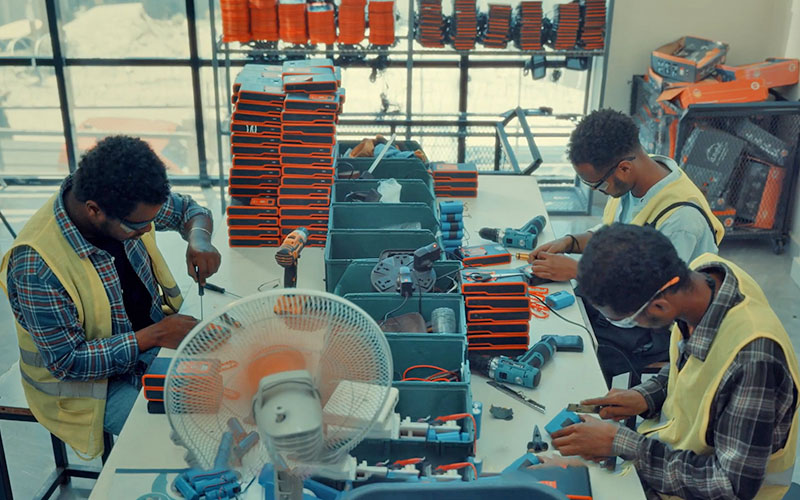
Inter Ethiopia Solutions (IES)
Inter Ethiopia Solutions (IES)
Inter Ethiopia Solutions PLC (IES) is an Ethiopia-based enterprise specialising in e-waste management and the refurbishment of solar home systems (SHS) for resale. Partnering with Hidasie Telecom (HT), which manages e-waste and distributes IES’s refurbished products, as well as collaborating with D.light on e-waste management, IES focuses on developing second-life solar systems using lithium-ion batteries. This initiative not only reduces e-waste but enhances access to renewable energy for Micro, Small, and Medium Enterprises (MSMEs) across Ethiopia.
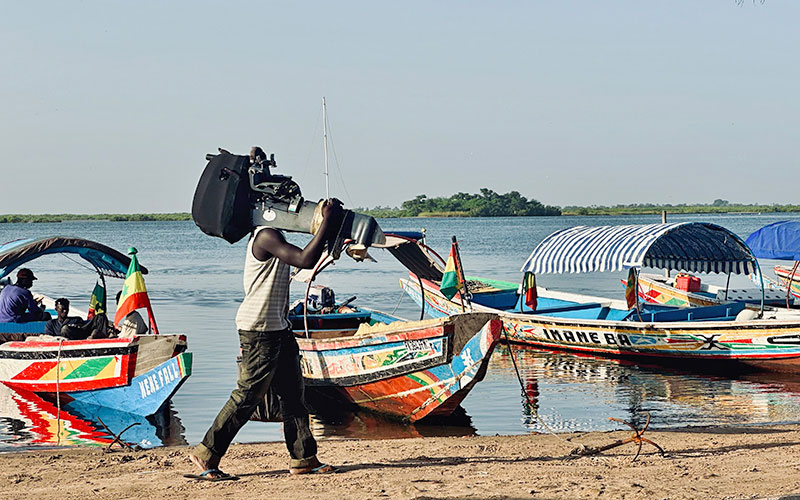
Jokuson Energies
Jokuson Energies
JOKUSON ENERGIES retrofits boat engines with electric motors, aiming to cut expenses, enhance safety, and contribute to global sustainability. The project enhances access to electricity, particularly in maritime areas, aligning with Senegal’s commitment to sustainable maritime practices and leverages a groundbreaking pilot with the Foreign Commonwealth & Development Office – the first of its kind in West Africa. Its innovative approach prioritises technology and knowledge transfer, deviating from conventional ready-made solutions. Retrofitting locally ensures mechanics’ proficiency, minimizes changes to existing repair systems, and significantly reduces maintenance costs. The transition to electric outboard engines positively impacts biodiversity and enhances tourism experiences through reduced noise disturbance. Jokuson’s pilot also provided crucial insights into establishing cost-effective battery charging facilities, whether grid-powered or solar.
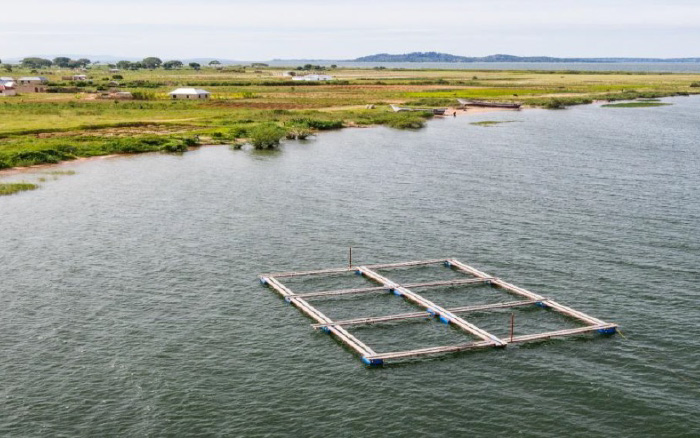
Jumeme
Jumeme
Under JUMEME’s new KeyMaker Model, the solar mini-grid company partners with village communities to harness local natural resources, leveraging reliable electricity from its mini-grids to create competitive products. With funding support from PREO, the venture aims to improve the local economy of Maisome island by creating jobs and entrepreneurial opportunities around Tilapia fish trading on Lake Victoria, which JUMEME collects, freezes using its own electricity, and delivers. This approach not only ensures high-quality fish for the market but also allows JUMEME to offer better prices to fisherfolk while maintaining profitability and increasing energy uptake from the local population (due to an improved economy).
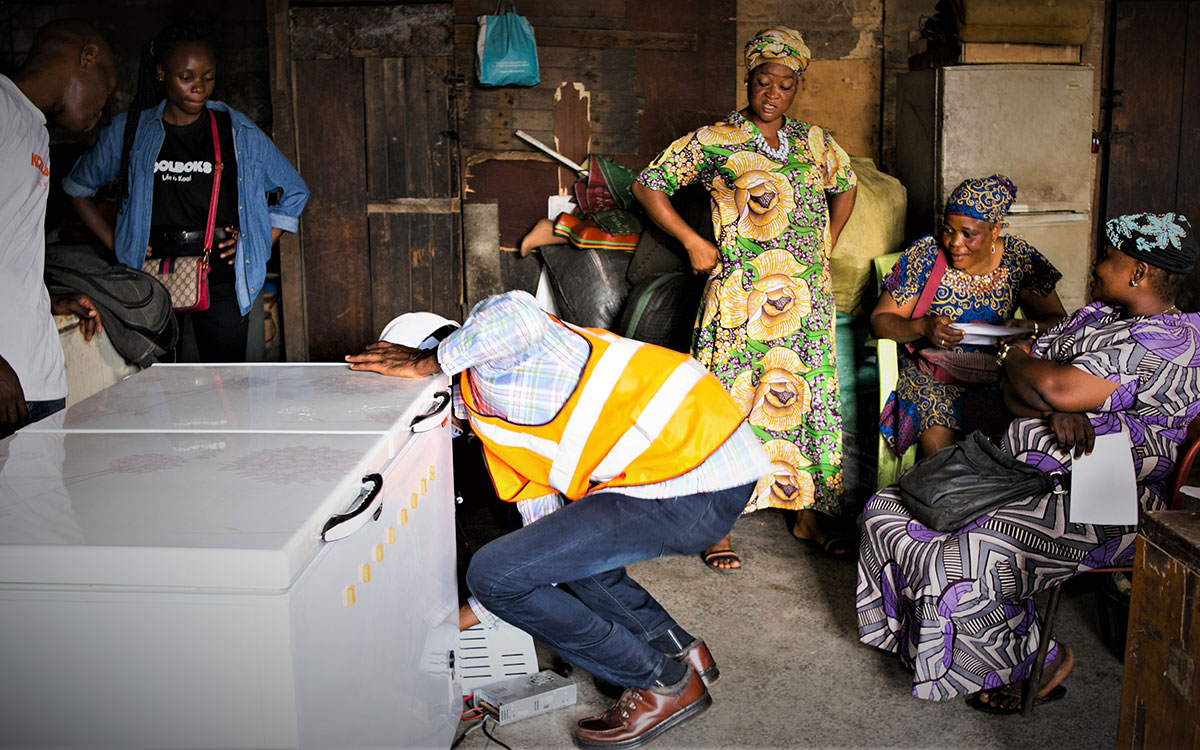
Koolboks
Koolboks
In Nigeria, unreliable refrigeration causes fish traders to lose about 30% of their products due to spoilage from power outages and high diesel generator costs. To address this, Koolboks, with support from PREO, is developing a sustainable business model by offering female fish traders access to off-grid solar refrigerators. Partnering with local organisations in Lagos, Koolboks will introduce a lease-to-own program for solar-powered refrigerators, scaling up from a successful 2020 pilot. This initiative aims to provide 300 affordable refrigerators to over 200 female traders across 12 markets and evaluate the broader social and economic benefits of solar refrigeration, also extending the solution to other frozen goods vendors.
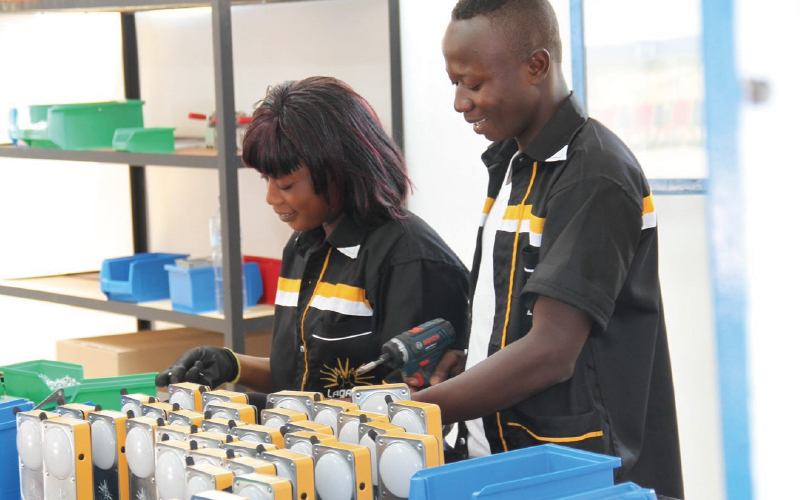
Lagazel
Lagazel
LAGAZEL, the first African company to manufacture solar lamps locally, addresses the critical electricity deficit affecting 640 million people on the continent. By providing a reliable, eco-friendly, and cost-effective lighting solution, LAGAZEL improves access to essential services and promotes economic development. With support from PREO, LAGAZEL has expanded its operations to Burkina Faso and Benin, producing durable solar lamps and home systems from recyclable metal. The company’s partnership with IFSRA further assesses the socio-economic benefits of its work, underscoring a commitment to local value creation and job sustainability.
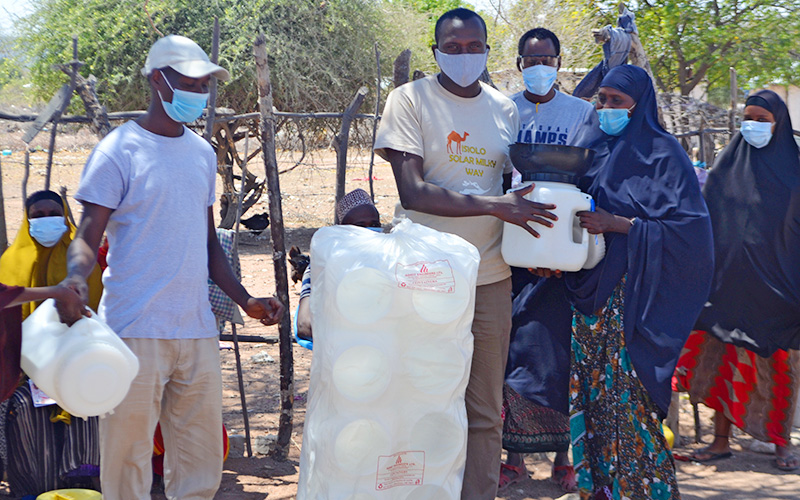
LVIA
LVIA
Lay Volunteers International Association (LVIA), through its pilot project in Isiolo County, Northern Kenya, will introduce solar-powered solutions for off-grid milk pasteurization and cooling, aiming to enhance sustainable livelihoods in climate-affected pastoral regions. With climate change causing severe droughts and prompting Borana pastoralists to adopt drought-resistant camels, camel milk has become a significant commodity linked to urban markets. Supported by PREO funding and local partners, LVIA’s project seeks to improve camel milk handling and trading practices, establish solar-powered milk processing and cold storage facilities managed by women, create a solar-powered cold chain for high-quality milk transport, and develop a marketing strategy to access upscale markets in Nairobi.

M-Kopa Labs
M-Kopa Labs
M-KOPA Solar, with PREO funding support, is piloting a project in rural Kenya to test whether providing micro, small, and medium enterprises (MSMEs) with an affordable bundle of a solar home system, smartphone, and e-voucher for business stock can enhance their economic viability. Not only do micro-enterprises stock essential household goods, they can also provide other downstream services to communities, such as phone-charging, telecom data vouchers, mobile money services, etc. The bundle, sold on a PAYG basis in collaboration with an e-commerce platform, aims to empower MSMEs by offering them access to affordable business stock on the platform and business management tools, while unlocking access to credit and energy for their businesses. The project targets businesses like general stores and agribusinesses, aiming to boost revenues, build competitiveness through the adoption of e-commerce, create jobs, digitise rural supply chains, and upskill entrepreneurs, with a focus on gender balance in business ownership of the enterprises.
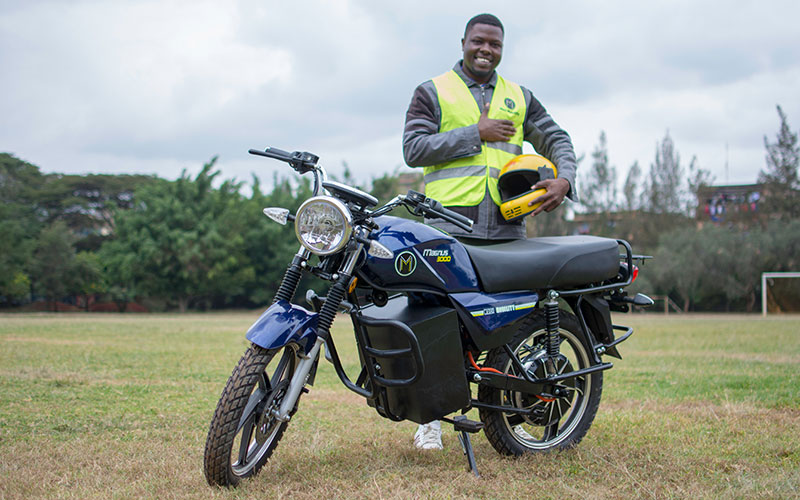
Mazi
Mazi
Mazi, an e-mobility company established in Kenya, provides electric motorcycles and charging infrastructure to address the pressing issues of environmental sustainability and urban mobility. Mazi’s solution is intended to meet the growing demand for low-cost, environmentally friendly transportation for both individuals and businesses in Nairobi. The company is establishing a comprehensive charging infrastructure and battery-swapping station network to ensure swapping is reliable and accessible. For efficient charging and a seamless user experience, Mazi’s charging and battery swapping stations uses advanced technology such as Arduino systems.
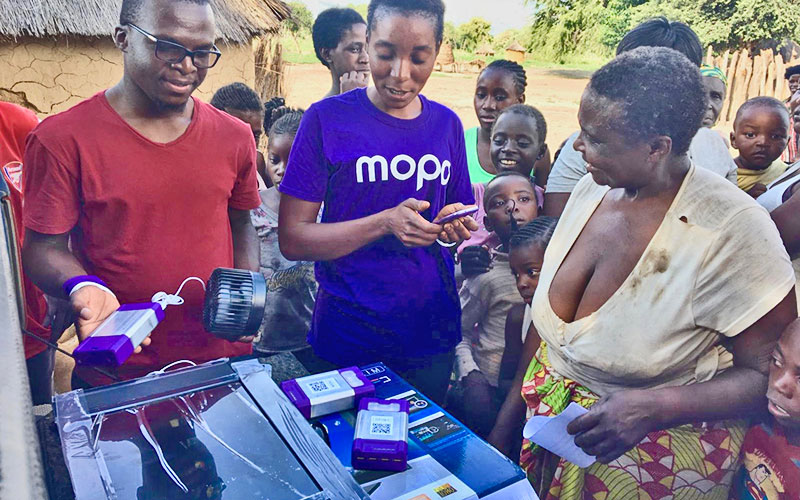
Mobile Power
Mobile Power
Mobile Power has developed a battery-as-a-service rental model that allows customers in sub-Saharan Africa to replace fossil fuels with battery-powered solutions for their businesses, homes, and vehicles. This model involves three key components: MOPO Batteries for storing and transporting energy, MOPO Hubs for charging batteries and managing operations, and the MOPO Platform for tracking batteries and managing agent activities. The company’s innovative approach eliminates the need for credit checks and regular payments, offering customers flexibility in accessing energy. With support from PREO, Mobile Power has successfully tested its e-motorbikes and battery swap model in Sierra Leone, which allows 3-wheeled electric vehicle owners to rent a battery pack for transportation and freighting, thereby utilising mini-grid electricity for sustainable transportation while improving productivity through access to new markets and reduced transport times (versus manual transportation).